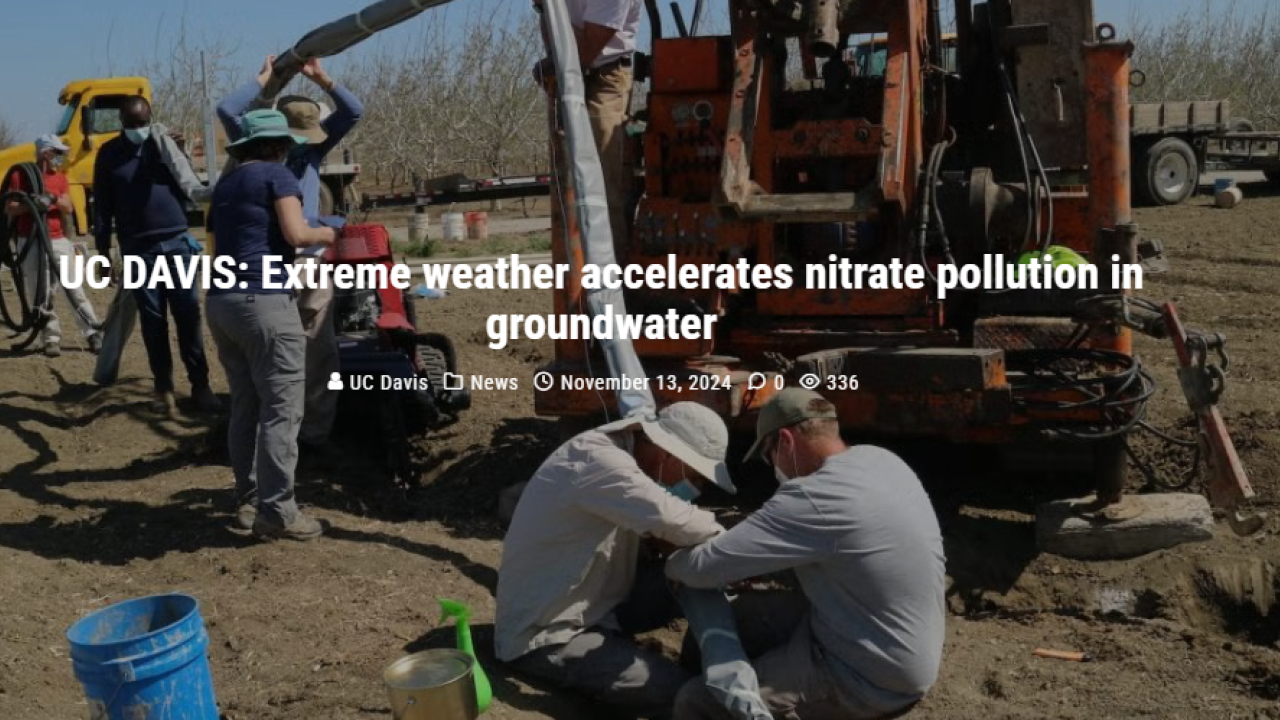
Extreme weather accelerates nitrate pollution in groundwater
Heavy rains can cause contamination in just 10 days
Extreme weather spurred by climate change, including droughts and heavy rains, may increase the risk of nitrates from fertilizers ending up in groundwater, according to a recent study from researchers at the University of California, Davis. The study found heavy rains after a drought caused nitrates to seep 33 feet under farm fields in as little as 10 days. The study was published in Water Resources Research.
“The conventional wisdom was that it could take several weeks to years for nitrates to move from the crop root zones to reach groundwater,” said corresponding author Isaya Kisekka, a professor in the Departments of Land, Air and Water Resources and Biological and Agricultural Engineering. “We found these extreme events, such as California’s atmospheric rivers, are going to move nitrate more quickly.”
In this study, different methods were used to measure how much nitrate, a component of nitrogen fertilizer, was seeping down through the soil in a tomato and cucumber crop near Esparto, California. Scientists conducted their research from 2021 until 2023 when California was experiencing periods of drought followed by atmospheric rivers. They measured nitrate during both the growing seasons and the rainy seasons.
To continue reading, visit the link below:
